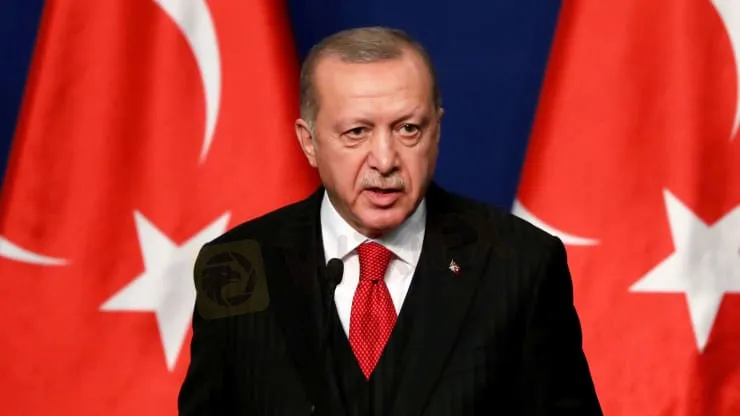简体中文
繁體中文
English
Pусский
日本語
ภาษาไทย
Tiếng Việt
Bahasa Indonesia
Español
हिन्दी
Filippiiniläinen
Français
Deutsch
Português
Türkçe
한국어
العربية
Turkish lira crashes to ‘insane’ historic low after President Erdogan sparks sell-off
Abstract:Inflation in Turkey is now near 20%, meaning basic goods for Turks — a population of roughly 85 million — have soared in price and their local currency salaries are severely devalued.

Turkeys lira crashed to a record low of 13.44 to the dollar on Tuesday, a level once unfathomable and well past what was just last week deemed the “psychological” barrier of 11 to the dollar.
“Insane where the lira is, but its a reflection of the insane monetary policy settings Turkey is currently operating under,” Tim Ash, senior emerging markets strategist at Bluebay Asset Management, said in a note in response to the news.
The lira was trading at 12.7272 to the greenback at 4 p.m. local time on Tuesday, and was down around 15% on the day at one point, according to Reuters.
The sell-off was triggered after Turkish President Recep Tayyip Erdogan defended his central banks continued contentious interest rate cuts amid rising double-digit inflation. He labeled the move as part of an “economic war of independence,” rejecting calls from investors and analysts to change course.
Inflation in Turkey is now near 20%, meaning basic goods for Turks — a population of roughly 85 million — have soared in price and their local currency salaries are severely devalued.
For perspective, at this time in 2019, the lira was trading at roughly 5.6 to the dollar. And that was already making news, as it was a dramatic drop in value from the mid-2017 level of 3.5 to the dollar.
‘Irrational experiment’
Turkeys currency has been in a downward slide since early 2018, thanks to a combination of geopolitical tensions with the West, current account deficits, shrinking currency reserves, and mounting debt — but most importantly, a refusal to raise interest rates to cool inflation.
Erdogan has long described interest rates as “the enemy,” rejecting economic orthodoxy to insist that raising rates actually worsens inflation, rather than the other way around.
Investors fear the lack of independence of Turkeys central bank, whose monetary policies are seen as being largely controlled by Erdogan. He has fired three central bank chiefs in roughly two years over policy differences.
Semih Tumen, a former central bank deputy governor who Erdogan dismissed in October, sharply criticized the presidents moves.
“We need to abandon this irrational experiment, which has no chance of success, and return to quality policies that will protect the value of the Turkish lira and protect the welfare of the Turkish people,” Tumen wrote on Twitter, according to a translation.

The latest sharp downturn began last Thursday when the central bank cut rates by 100 basis points to 15%. Its cut rates by 400 basis points since September alone.
According to ratings agency Fitch, in August 57% of Turkeys central government debt was foreign currency linked or denominated, meaning paying that debt becomes more painful as the lira continues to drop in value.
“We are seeing a perverse economic experiment of what happens when a central bank has effectively no monetary policy,” Ash said.
“Erdogan has taken away the ability of the CBRT (Central Bank of Turkey) to hike policy rates.”
For more Forex news, please download WikiFX- the Global Forex Regulatory Inquiry APP.
Disclaimer:
The views in this article only represent the author's personal views, and do not constitute investment advice on this platform. This platform does not guarantee the accuracy, completeness and timeliness of the information in the article, and will not be liable for any loss caused by the use of or reliance on the information in the article.
Read more

Currency Fluctuations: What It Means When a Country's Currency Rises or Falls
When a country’s currency appreciates or depreciates in value, it reflects the underlying shifts in its economy and global market dynamics. For forex traders, understanding what drives these fluctuations—and how to strategically prepare for them—can make the difference between profit and loss in an ever-volatile market.

Yuan Volatility Surges as US Election Approaches
As US elections near, yuan volatility surges. Traders brace for tariff risks and market swings, preparing for potential economic shifts under Trump or Harris policies.

UAE Approves AED Stablecoin for Digital Transactions
UAE grants approval for AED Stablecoin AE Coin, a regulated Dirham-pegged cryptocurrency, transforming blockchain payments for businesses and individuals in the UAE.

Understanding Currency Strength & Weakness: What It Means for an Economy
Currency movements—whether a currency strengthens or weakens—are critical indicators of a country's economic health and its position in the global market. In this article, we explore what these movements imply, and how they influence a country’s economic landscape.
WikiFX Broker
Latest News
ASIC Sues Binance Australia Derivatives for Misclassifying Retail Clients
Geopolitical Events: What They Are & Their Impact?
Top 10 Trading Indicators Every Forex Trader Should Know
WikiFX Review: Is FxPro Reliable?
Malaysian-Thai Fraud Syndicate Dismantled, Millions in Losses Reported
Trading frauds topped the list of scams in India- Report Reveals
Why Do You Feel Scared During Trade Execution?
WikiFX Review: Something You Need to Know About Markets4you
Revolut Leads UK Neobanks in the Digital Banking Revolution
Fusion Markets: Safe Choice or Scam to Avoid?
Currency Calculator



